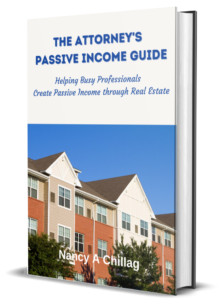It’s okay if you haven’t heard of “house hacking” before or don’t know what it is. Anyone can do it, and you might already be doing it without realizing it!
If you’ve felt the desire to reduce your living expenses or if you’ve been trying to figure out how to have renters pay down your mortgage for you, you may be a great candidate for house hacking.
In this article, you’ll learn what house hacking is, find out how to decide if a property is a house-hack-worthy purchase, discover how to get started, and learn how to stockpile your earnings from one property to buy the next and continue to build your wealth.
House Hacking Defined
If you live in one portion of a property and rent out another room, unit, or space on the same property, you’re essentially house hacking. You can become a house-hacker with any small multifamily unit like a duplex, triplex, or quad, and, surprisingly, you can even do it with a single-family home!
Basically, your renters pay a monthly equivalent close to, equaling, or greater than your mortgage payment on the property, rendering your housing expenses near or at zero. This way, you’re earning equity and paying down the mortgage without actually having to pay it yourself!
This frees up your budget, reduces the likelihood you’ll remain in a job you hate and decreases your stress. When you can have good, paying tenants in your units and live with $0 housing expenses, you free up your finances to accomplish more, grow your wealth faster, and earn passive income to fund the lifestyle you want.
How Do You Know If A Property Is A Good Purchase For House Hacking?
If you want to get started house hacking, first, you need the “perfect” house-hacking property.
That doesn’t mean you’re in search of a fully renovated, adorable property or even one that has excellent curb appeal. Perfect, in this case, means that the rental rates you could theoretically charge a tenant will cover or come close to covering the mortgage payment on the entire property.
To get to that point, you must first consider how much rent each unit of the property is likely to provide and compare that with your expected mortgage payment. Look at the price of duplexes, for example, and see if the overall cost of the property would render a mortgage payment that could be covered by the rental income from one unit alone.
An Example: If you find a duplex for $400,000, you’ll likely apply a down payment of $80,000 in cash (20%). That leaves you with a $320,000 mortgage. At about 5% interest on a 30-year mortgage, your payments will be about $2,000 each month.
With this knowledge, you’ll scope out the rental market and see what renters generally pay for units comparable in size to one you anticipate having for lease. This is as simple as looking at Craigslist or any other online hub where people share and shop for a place to live. Don’t overcomplicate the research process!
If the rental rates you see in the market are at or near $2,000 per month, then it’s likely you’ll be able to get a paying tenant in one side of your duplex for that amount. Then, you can live “for free” in the other side while your tenant’s rent payments build your equity in the home by covering the mortgage payment.
If the rent rates in the area are a little less, say $1,800 per month, then you’ll have to pitch in $200 a month to cover the mortgage on the property. But, hey, I’ve never found rent for $200 a month before, so I’d still say you worked yourself a great deal!
On the other hand, if you find out rental rates in the area are $2,200 per month, your renters will be paying more than your mortgage payment, leaving you a little cash flow right away!
Either way, you’ve reduced your living expenses to essentially zero and gained a significant advantage toward being able to save for your next real estate endeavor.
What Else Does It Take To Get Started House Hacking?
Getting started house hacking is easy! All you need is your down payment in cash (20% of the market price of the property is required) and some basic knowledge of the area and types of property you’re searching for.
You may want to stash a little extra cash in a reserve account for things like anticipated renovations, lawn services, and pest control. Some unanticipated costs of becoming a landlord may be repairs, tenant damage (intentional or not), and notary or attorney fees.
You can easily find templates for tenant applications, leasing forms, and even contractor agreements online. Take advantage of services like Angie’s list or similar to find reliable handymen for repairs.
Once you have your savings goals met, simply expand your property search to include small multifamily units like duplexes or triplexes in the area. You can easily do this on any home listing site like realtor.com or by asking your agent.
How To “Snowball” Your Real Estate Purchases And Keep Living For Free While Investing More
Once you see the magic in having your tenants pay your mortgage while you live for free, you’ll probably want to do it again and again, accumulating real estate properties, growing the number of units you have rented out, and building your equity and passive income as you go.
The primary way to accomplish this is, as your tenant is covering your mortgage with their rent payments, continuing to “pay rent” to yourself. Set aside at least $1,000 per month into a separate savings account as if you were still paying a mortgage payment or rent. In time, this account will accumulate enough savings to cover a down payment on your next rental property.
As you move out of your first duplex, for example, and get another tenant to rent your old space, you’ll suddenly have two people paying $1,600 per month, effectively doubling your rental income. Meanwhile, you’ll be moving into a new triplex, for example, living in one unit and finding paying tenants to live in the other two.
With House Hacking, Who Knows What Your Future Contains!?
I’m sure you can continue to project a growing number of units and the passive income that goes with them by repeating this formula every few years. The good news is, you’d be on your way to ever-increasing net worth, tax benefits, and a diverse portfolio of recession-resistant assets too!
If you’ve been wanting to quit your job and travel full time, creating passive income through real estate investments could be the key to making that happen. Of course, it all starts with your first small multifamily property purchase.
I have to share this caveat now – being a great landlord is hard work and requires your time and attention to daily decisions about what’s best for the property and your tenants. Even if you choose to use a property management company, you’re still responsible (and liable) for every repair, tenant complaint, rent raise, and eviction.
If passive income and real estate investments sound great, but you’d rather not move every few years or deal with tenants and other landlord responsibilities, you might be more inclined toward group investments called syndications. When you invest as a limited partner in a real estate syndication, you reap all the benefits of real estate like tax deductions, passive income, and property value appreciation without dealing with any landlord-type headaches.
Real estate syndications have become my favorite way to passively invest in stable, tangible assets, earn passive income, and limit my liability so I can live the life I’ve always dreamed of with and for my family.
Neither house hacking nor real estate syndication investing requires any experience, degrees, or certifications. You don’t have to be experienced in one to do the other. Start by identifying your lifestyle and investment goals first, then decide if you’re willing to try to manage a property as a landlord.
For other ideas about investing in real estate with little or no money, check out my e-book No Money? No Time? No Problem!


